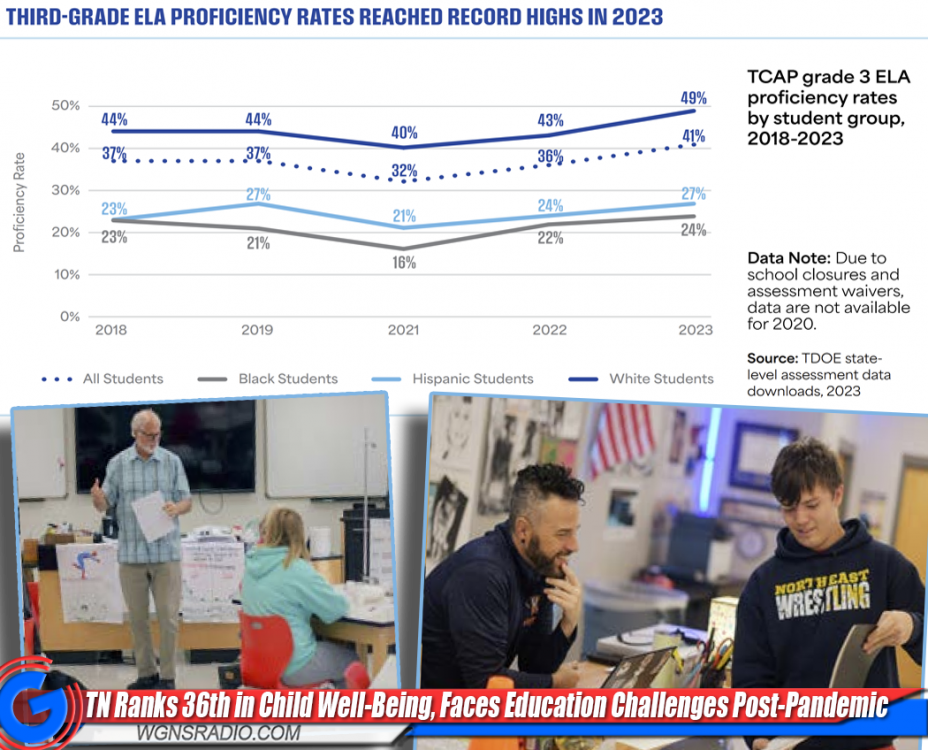For the fourth consecutive year, Tennessee ranks 36th in overall child well-being according to the 2024 KIDS COUNT® Data Book, an annual report by the Annie E. Casey Foundation. The report analyzes data from all 50 states to assess how children are faring, with this year's focus on the lingering educational challenges from the COVID-19 pandemic, including learning loss and chronic absenteeism.
In education, Tennessee holds the 32nd spot. While national assessments showed a significant drop in proficiency from 2019 to 2022, state assessments from Tennessee indicate a recovery with notable improvements in 2023. However, chronic absenteeism hit a historic high with 23% of students missing school frequently during the 2021–2022 academic year.
Brian Straessle, executive director of the Sycamore Institute, noted that the data helps understand Tennessee's standing compared to other states in areas crucial for economic competitiveness. The KIDS COUNT Data Book, now in its 35th year, underscores the importance of basic reading and math skills, which saw unprecedented declines nationwide during the pandemic.
Disparities in educational outcomes were evident, with 83% of Tennessee's 4th graders eligible for school lunch programs scoring below proficient in reading, compared to 64% of their non-eligible peers. Furthermore, significant racial disparities persist, with 63% of white 4th graders, 78% of Hispanic students, and 87% of black students scoring below proficient in reading.
The report ranks Tennessee 34th in economic well-being, 38th in health, and 39th in family and community factors, reflecting both pandemic impacts and ongoing challenges. Despite some progress in early 2010s test scores, Tennessee and the nation still lag behind in essential skills for a competitive global economy.
With 23% of federal pandemic education funding still available, Tennessee has opportunities to further improve student achievement. Strategies include addressing factors influencing attendance and academic performance, reducing chronic absenteeism, and enhancing mental health services. Implementing best practices in tutoring and summer learning programs, and exploring community schools could also support students and families.
The ongoing efforts aim to enhance career readiness, essential for Tennessee's and the nation's economic future, and mitigate the long-term impacts of pandemic-related learning losses.





